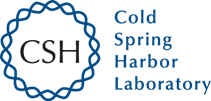
The Claire Friedlander Family Foundation’s donation of $200,000 for a new Illumina NextSeq 500 at Cold Spring Harbor Lab’s Genome Center has helped advance many exciting research projects in recent months. Technological advances have made genomic approaches critical for understanding basic biological processes so that genomic research now impacts all areas of life science research. One of the most widely used shared facilities is the CSHL Genome Center, home to the latest in both short and long read sequencing technology. Some of the projects made possible are:
Data Fusion to Discover subtypes of Bipolar Neurons in the Retina and to Characterize Similarities between Human and Mouse Midbrain Development: This collaborative project between CSHL labs led by CSHL Professors Jessie Gillis and Josh Huang aims to quantify the degree to which cell types replicate across datasets to enable rapid identification of clusters of high similarity.
Evaluating Racial Differences in Gastrointestinal Cancer Biology: A collaboration between CSHL’s Richard McCombie, Stony Brook University’s Ellen Li and SUNY Downstate’s Laura Martello-Rooney is accessing clinical samples from disparate populations from both Stony Brook and Downstate to reveal genetic markers to pinpoint which individuals will develop colon cancer and, how they will respond to conventional and/or novel treatments.
Defining Changes in Gene Regulation in Pancreatic Cancer: This is a collaboration between CSHL’s Cancer Institute Director, David Tuveson and Dr. Gerardo MacKenzie’s lab at Stony Brook. It uses the Tuveson lab’s innovative organoids (hollow spheres of cells cultured from tumors) testing system to quickly and accurately predict how patients with pancreatic cancer will respond to a variety of treatments.
Gene Regulatory Mechanisms Underlying Sex Differences in Brain Development and Psychiatric Disease: Many psychiatric conditions display a sex bias in incidence, onset, or symptoms. The underlying reasons for these sex differences are still obscure so CSHL’s Professor Jessica Tollkuhn is focused on discovering which mechanisms of gene regulation in sex‐specific processes may contribute to sexual dimorphisms in mental illness, particularly in Autism.
Discovery of a Peptide that shrinks mouse models of Leukemia by 80% Breast and Colon Cancers: Graduate student Yali Xu in Professor Chris Vakoc’s lab at CSHL screened thousands of leukemia and normal blood cells using the NextSeq 500 and discovered a way to attack a high-profile cancer target which is involved in numerous life functions (without it, organisms couldn’t survive). They found that they could use a small peptide decoy to trick the target into believing it had attached to the Peptide when, in reality, it hit the equivalent of a molecular dead end.
Peter J. Klein, President, The Claire Friedlander Family Foundation, reflects on funding this project in 2016 when he and his wife Irene, Vice-President of the Foundation, first attended an event at the Lab, they knew “it was a special place with highly engaged, brilliant folks doing impassioned work,” and they wanted to help. “Seeing the scientific progress this gene sequencer has made possible is thrilling. The Foundation is pleased to support the life-changing research at CSHL.”
Click here for more information.
